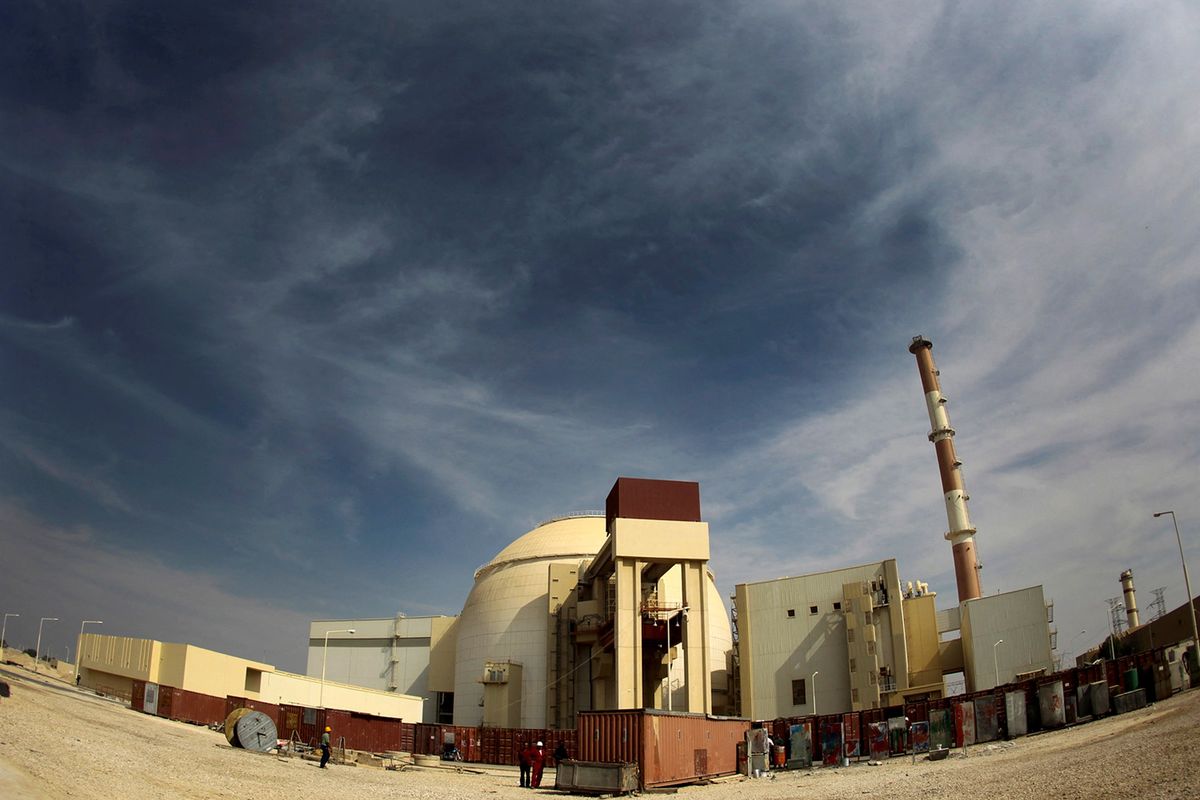Khamenei says Iran-US talks going well but may lead nowhere
Tehran and Washington are scheduled to meet again in Oman on Saturday

Khamenei addressing public sitting on a chair.
Iran’s supreme leader said Tuesday he was satisfied with renewed talks between Iran and the United States but warned the negotiations may ultimately prove fruitless.
Ayatollah Ali Khamenei described the latest discussions, held in Muscat last Saturday, as "well carried out in the first steps" but cautioned that progress was uncertain.
“Of course, we are very pessimistic about the other side, but we are optimistic about our own capabilities,” he said, according to state television.
Tehran and Washington are scheduled to meet again in Oman on Saturday for what would be their highest-level engagement since the 2015 nuclear deal collapsed.
Despite having no diplomatic relations since Iran’s 1979 revolution, both sides described the weekend talks as “constructive.” However, Iran maintains the negotiations are “indirect” and mediated by Oman.
Khamenei emphasized Iran’s bottom line: “The negotiations may or may not yield results. Our red lines are clear.”
U.S. pressure and Iranian defiance
The renewed talks come after U.S. President Donald Trump—who withdrew from the nuclear deal during his first term and returned to office in January—revived his “maximum pressure” campaign against Tehran.
In March, Trump sent a letter to Khamenei urging dialogue and warning of military consequences if Iran refused.
On Monday, Trump again threatened to strike Iranian nuclear facilities, calling Iranian leaders “radicals” who should never possess nuclear weapons. Iran denies it is seeking nuclear arms, asserting that its program is strictly for peaceful purposes such as energy production.
Iran’s elite Islamic Revolutionary Guard Corps reiterated Tuesday that the country’s military and missile capabilities were not up for discussion. “National security and defense power are red lines and cannot be negotiated under any circumstances,” said spokesman Ali Mohammad Naini.
According to Iran’s state media, the country’s influence across the region and its support for the “axis of resistance”—including Hezbollah in Lebanon, Hamas in Gaza, and Houthi rebels in Yemen—are also non-negotiable.
Uranium enrichment and IAEA oversight
The U.S. is pushing for Iran to return to the limits set under the Joint Comprehensive Plan of Action (JCPOA), which capped uranium enrichment at 3.67 percent.
U.S. Middle East envoy Steve Witkoff, who led the American delegation in Oman, said any agreement would require “verification on enrichment and ultimately verification on weaponization—including the types of missiles they have stockpiled and the trigger for a bomb.”
A February report by the International Atomic Energy Agency (IAEA) found Iran possessed an estimated 274.8 kilograms of uranium enriched to 60 percent purity—dangerously close to weapons-grade level.
IAEA Director General Rafael Grossi is expected to visit Iran on Wednesday.
Khamenei, referencing the 2015 deal, said Iran had erred in placing too much hope in diplomacy. “This mistake... should not be repeated here,” he told Iranian officials in Tehran.
Popular
Spotlight
More from World
US, Iran to hold new nuclear talks on eve of Trump travel
Witkoff to represent US in fourth round of negotiations since Trump's return to office













Comments
See what people are discussing